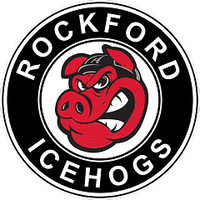
THE FAR SIDE OF THE POND: WHA-t Was it Good For?
By Chad Huebner
It’s almost the 30th anniversary of one of the most significant events in hockey history. I’m talking about when four teams of the WHA, the World Hockey Association were admitted into the NHL.
It was a time when a league won, but lost and another league lost, but won.
What? Or in this case, wha?
See, there was a time when the owners of the NHL were making money hand over fist, yet didn’t give much of what they made to their own players. For a long time, there were only six teams in the league, so roster spots were few and cherished. If the players clashed with the management over, well, anything, down to the minors they went. There were plenty of guys in the lower ranks hungry for an opportunity in the big league.
(I’m sure nowadays things are hunky dory between the NHL teams and their players, or we would have had some cataclysmic labor event like a lockout. . . oh, guess that happened once already. . . I mean, twice.)
When the WHA was created in 1971, the NHL had already expanded to 14 teams, six in 1966, and two teams each in 1970 and 1971. In fact, the 1971 expansion which featured the Atlanta (now Calgary) Flames and the New York Islanders was mainly to shut out the upstart league from setting up shop in both areas. Nevertheless, the WHA did set up a team in New York, though that was a short-lived venture that went through three name changes, three owners and two moves before relocating to San Diego.
The WHA started with a dozen teams, some of which, like the New York, Chicago and Los Angeles franchises already had NHL clubs to compete against. But there were places like Quebec, Ottawa and Edmonton that always wanted a professional franchise, now they had a chance. And it was the first foray by a pro league into the Sun Belt with the creation of the Houston Aeros (Phoenix would also get a franchise in the late 70s).
The allure of this rebel league was the fact that the teams were willing to offer the players salaries never dreamed of before. Bobby Hull, who became the first big name of the league (and probably the most significant in sports history), was in talks with the WHA’s Winnipeg Jets for a chance to play in the Manitoban city. He threw out the number 1,000,000, as in dollars, never dreaming the Jets would match that offer. Sure enough, the Jets were willing to make him a million-dollar player, and the rest was history. Other NHL players started taking the WHA seriously, and quite a few NHL clubs felt the pinch when they all left for the new league.
I could go into detail about what the WHA did over the rest of the 70s, showing that while teams and players came and went, the WHA stayed around and annoyed the heck out of the stoic, penny-pinching NHL, but authors with better research than I have done a lot better job in this area. If you’re anywhere near the stats freak I am (remember, I am a member in good standing of the Society for International Hockey Research), I recommend “The Complete Historical and Statistical Reference to the World Hockey Association 1972-1979” by Scott Adam Surgent. This book goes into great detail on player and team stats, and even gives a biographical history on every team that played in the league.
But if you’re looking for something that has plenty of humor in telling the tale of the WHA, then I heartily recommend the book I’m reading now, and which is primarily the inspiration for this column “The Rebel League: The Short and Unruly Life of the World Hockey Association” by Ed Willes. Yes, both books are a mouthful in title space, but don’t cost too much to buy on Amazon.com, and make neat post-Christmas gifts to yourself.
The WHA finally closed up shop in 1979, but not before four of its clubs were included in the NHL ranks. Out of the four, only the Edmonton Oilers are in the same city they were when they were accepted in the NHL, but one could argue the Oilers were the most important addition to the NHL because of The Great One. Just as having Hull helped give the WHA credibility, so did having Gretzky leave the WHA to join the NHL give the WHA a permanent place in hockey history. It fought a war that seemed doomed from the start, but kept fighting for nearly a decade, and finally won in the end because of what it did to the professional hockey landscape. Player salaries that were once a joke are now still skyrocketing because of what the WHA offered that the NHL refused to.
Gee, that would be great in real life. Imagine a “league” where it rewarded its “players”, or in this case “hardworking office workers in dead end jobs”. Maybe it’s not even a “league”, but one “team” or “company”. And let’s say there’s an exceptional “hardworking office worker in a dead end job”, we’ll call him “Thad”, that wants an opportunity to “work” aka “play” for that “team” aka “company” and leave his current “team” aka “company” because they’re penny-pinchers. I mean, where could such a WHA-like “company” reach “Thad” and make his dreams come true?
Remember, e-mail me at chadhuebner1972@yahoo.com for anything on your mind, hopefully hockey related (or even relating to “Hardworking office workers in dead end jobs”). Best responses and/or questions will be answered publicly.




